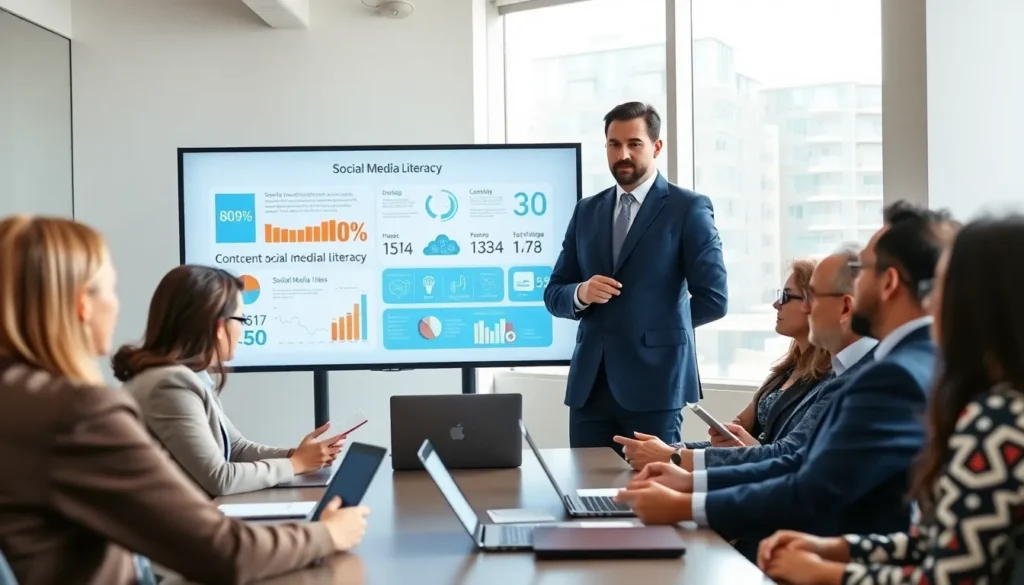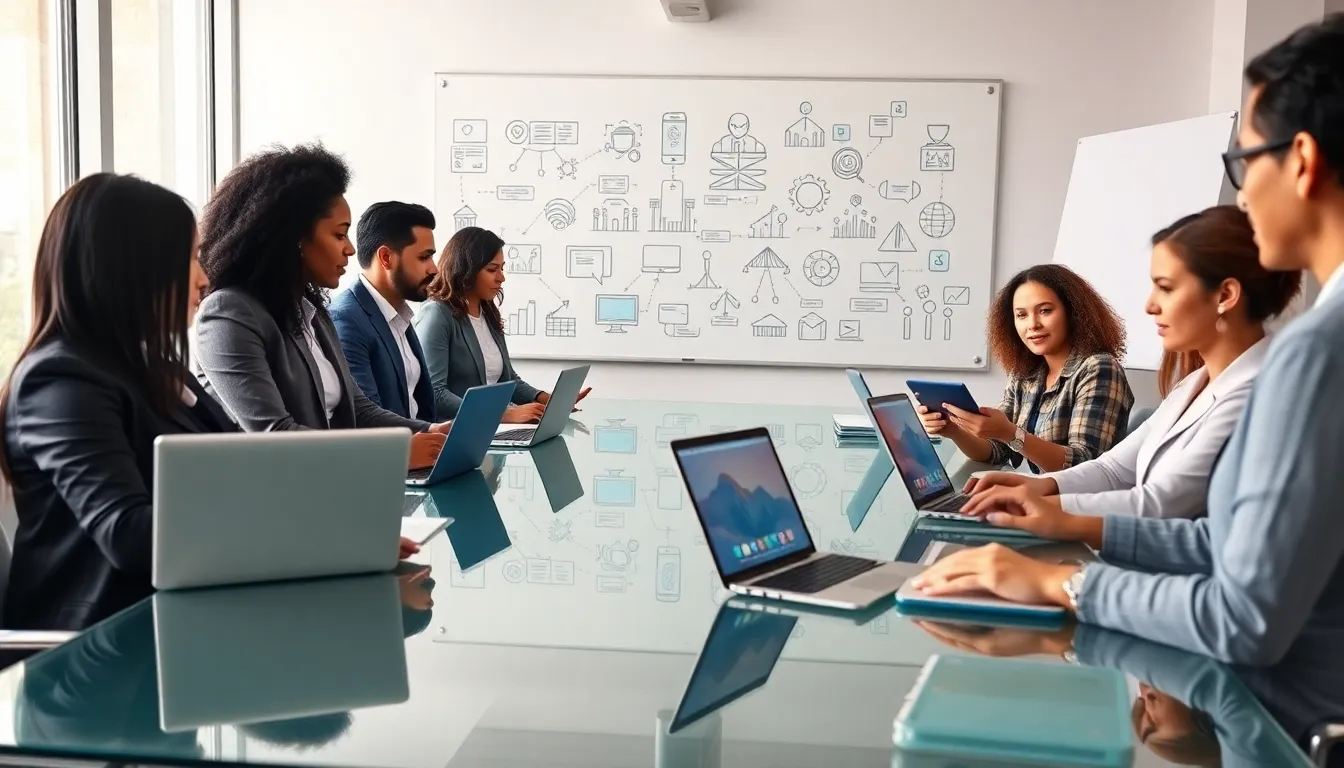Social Media Literacy: Navigating the Digital Landscape with Confidence

In a world where the average person spends over two hours a day scrolling through social media feeds, social media literacy is more crucial than ever. Navigating the digital landscape can feel like walking through a minefield, one wrong step and kaboom. But fear not, because becoming savvy about social media isn’t just for teenagers or tech whizzes. It’s a necessity. Understanding how to sift through the noise, distinguish fact from fiction, and ensure your privacy is in check can help anyone thrive in this virtual jungle. Let’s jump into the essentials of social media literacy and why it matters.
social media literacy

Social media literacy refers to the ability to engage thoughtfully and responsibly with digital platforms. It encompasses various skills, including understanding how these platforms work, recognizing the implications of online interactions, and effectively communicating in a digital environment. This digital fluency allows users to navigate not just the vast array of information available online but also the complex social dynamics at play on these platforms. With social media evolving constantly, being literate means adapting to new formats and functionalities.
Importantly, social media literacy isn’t merely about technical skills: it involves critical understanding and reflective engagement. It’s about more than just knowing how to post a tweet or like a photo. It means interpreting algorithms, understanding the influence of advertisements, and recognizing how one’s online presence can affect personal and professional reputations.
The Importance of Social Media Literacy in Today’s World
In today’s hyper-connected society, social media literacy cannot be overstated. The ability to discern credible sources from deceptive ones has significant implications for personal decision-making and community well-being. For instance, false information about health can lead individuals to make harmful choices. Also, understanding online privacy can safeguard personal information from misuse.
Also, as societal conversations increasingly take place online, individuals equipped with social media literacy are better prepared to engage in constructive dialogues. They become informed citizens who can navigate issues like political discourse, social justice movements, and environmental activism more effectively. The consequences of lack of literacy can be severe, resulting in misinformation spreading rapidly and communities polarizing further.
Key Aspects of Social Media Literacy
Critical Thinking and Evaluation Skills
Critical thinking lies at the heart of social media literacy. It involves assessing the reliability of information sources. Users must ask themselves questions about who created the content, what their motives might be, and whether the claims are backed by evidence.
Recognizing Misinformation and Disinformation
In a world overflowing with information, distinguishing between misinformation (false information shared without harmful intent) and disinformation (deliberately misleading information) is vital. Social media literacy enables users to spot red flags, like sensational headlines and dubious sources, that suggest content may not be trustworthy.
Navigating Privacy and Security Concerns
Privacy on social media is a hot topic these days. Users should be aware of what personal information they share and to whom. Social media literacy includes understanding privacy settings, recognizing the implications of sharing personal details, and being cautious about friend requests or messages from strangers.
Developing Responsible Online Behavior
Being a responsible social media user goes beyond cautious sharing. It means engaging in respectful discourse, recognizing the impact of one’s comments and posts, and understanding the permanence of online actions. Teaching responsible behavior ensures that social media remains a safe space for everyone.
Strategies for Enhancing Social Media Literacy
Educational Programs and Resources
Schools, libraries, and community centers are stepping up with educational programs dedicated to improving social media literacy. These resources often include workshops, online courses, and guides that encourage critical thinking and responsible behavior. By providing structured learning, individuals of all ages can enhance their skills in a supportive environment.
Role of Parents and Educators
Parents and educators play a pivotal role in shaping social media literacy from an early age. Open conversations about social media can help young users understand the potential risks and benefits. Educators can incorporate social media literacy into the curriculum, fostering discussions that prepare students for real-world scenarios.
Community Initiatives
Community initiatives aimed at boosting social media literacy are cropping up everywhere. These involve workshops, public forums, and campaigns designed to raise awareness about responsible social media use. Collaborating with local organizations, these initiatives provide a collaborative learning platform where individuals can share experiences and strategies. By promoting social media literacy community-wide, the conversation expands, establishing a culture of informed engagement and safety.

 Wi-Fi, Wandlust & Deadlines: The Essential Tools Every Traveling Social Media Freelancer Needs
Wi-Fi, Wandlust & Deadlines: The Essential Tools Every Traveling Social Media Freelancer Needs  What Is a Blue Page on Social Media? Discover Its Significance
What Is a Blue Page on Social Media? Discover Its Significance  Social Media Copywriting: Mastering the Art of Engaging Posts
Social Media Copywriting: Mastering the Art of Engaging Posts